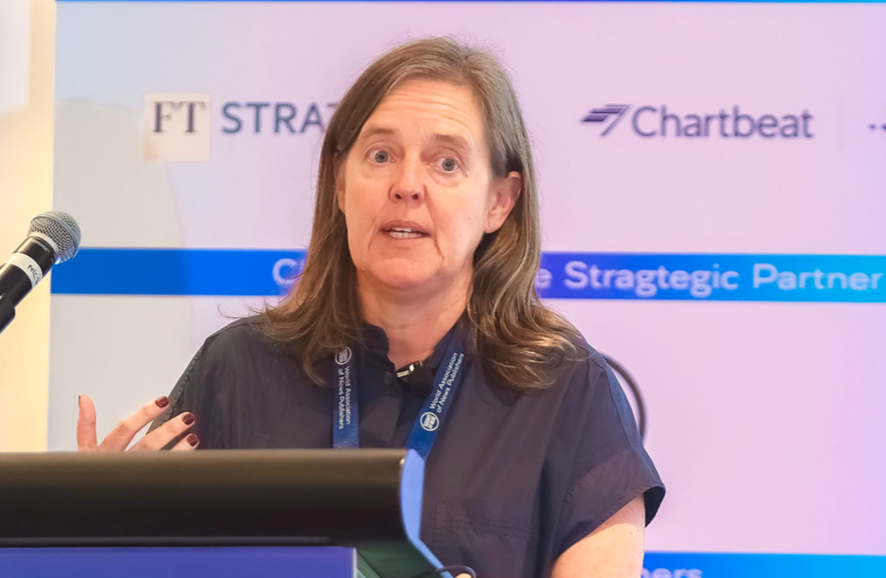By Hannah Chia
According to Statista, the AI market is expected to rise from 241 billion dollars in 2023 to 740 billion dollars in 2030, and Dow Jones believes that it will benefit from the possibilities offered by AI.
“It’s a big opportunity. It’s very black and white. It’s going to save our industry,” said Ingrid Verschuren, Executive Vice President of Data and AI and General Manager for EMEA at Dow Jones.
More than 600,000 news articles a day
Dow Jones currently uses AI to go through vast amounts of data. Processing more than 600,000 news articles daily, the company employs Natural Language Processing (NLP) to apply metadata. This helps Dow Jones remain focused on things AI cannot do.

“We firmly believe that those newsrooms, those news gathering organisations and operations are never going to be replaced with generative technology,” Verschuren told participants at WAN-IFRA’s Asian Media Leaders Summit in Singapore.
She also stressed the need for control and oversight of where and how news and information processed by AI are used.
Transparency and governance are especially important as Dow Jones aims to remain transparent to their licensees and other publishers.
This is why the newsroom has a representation in Dow Jones’ AI steering committee: It acts as a stakeholder to determine policies regarding AI in their journalism.
“We want to make sure that we are the source of truth…in business, in finance and in life.” Verschuren said. “We do that by providing the world’s most trusted journalism, data and analysis to help people make decisions.”


To do this, Verschuren thinks the answer is to tread carefully with Generative AI.
“We have to be careful not to use Gen AI as an answer to all problems. The main question is to focus on the problem, and then find the answer.”
Guiding pillars for using AI
Dow Jones has established three guiding pillars when using AI: To act as a publisher, arbiter and innovator.
Verschuren explained that as publishers, Dow Jones needs to ensure that everything they do is rooted in that belief, and affects how they act.
“We want to make sure that we can continue to provide great journalism. To do so, we need to make sure our work is recognised, valued and licensed.”


Most important is the fair compensation of content. Dow Jones wants to make sure that content creators are paid for their work.
“If people want to use our content, they will have to pay for it. And we can only continue to provide news if we get paid for the content that we create.”
‘We also have to be innovators’
Acting as arbiters for publishers helps strengthen the ability of journalists to report the news accurately and fairly. This is especially important for Dow Jones, which also owns Factiva, a business research tool with information management capabilities.
“We are committed to serving as a custodian and conduit for compliance of the use of content. Once we think about those two first pillars, then we also have to be innovators.” Verschuren said.
Despite acknowledging the difficulty balancing editorial integrity and involving commercial models, Dow Jones remains “absolutely invested.”
She acknowledged the journey still requires a lot of learning, but Dow Jones intends to lead innovation.
“As long as we can continue to be a good steward for our content and other people’s content,” Verschuren said.
About the author: Hannah Chia is a student at Nanyang Technological University’s Wee Kim Wee School of Communication and Information.



